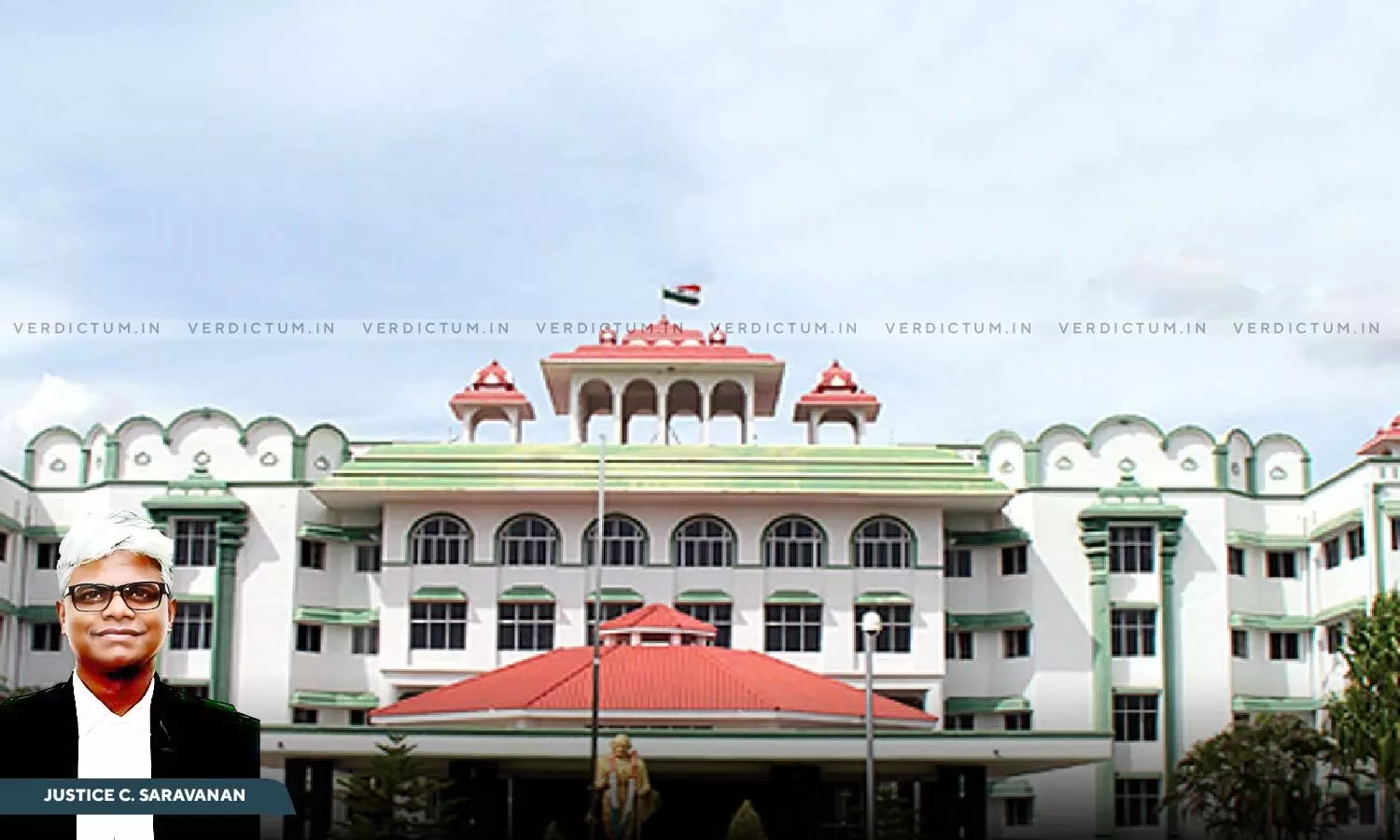
Grant Of First Honour In Temples Foster Discrimination; Section 63(e) TNHR&CE Act Prima Facie Unconstitutional: Madras HC
 |
|The Court observed that the practice of granting hereditary “first honour” rights in temples under Section 63(e) of the Tamil Nadu Hindu Religious and Charitable Endowments Act, 1959, appears inconsistent with the constitutional guarantees of equality under Article 14 and fosters forms of discrimination prohibited under Article 17.
The Madras High Court has expressed serious doubts over the constitutional validity of Section 63(e) of the Tamil Nadu Hindu Religious and Charitable Endowments (HR&CE) Act, 1959, which recognizes claims to hereditary or customary “first honour” rights in temples.
The Court was hearing petitions related to a dispute over entitlement to the ceremonial rights during the Aadi festival at Arulmigu Kallazhagar Thirukovil in Madurai.
Justice C. Saravanan, while deciding the matter, observed: “It is to be noted that the claim for these first honours in the temple appears to be an age-old practice that was followed during the feudal era. The establishment of such rights has been incorporated under Section 63(e) of the Tamil Nadu Hindu Religious and Charitable Endowments Act, 1959. The practice of conferring such rights, prima facie, appears to be anathema to the right of equality enshrined in Article 14 of the Constitution of India.”
Advocate H.Lakshmi Shankar appeared on behalf of the petitioners, while Advocate S.S. Madhavan (Additional Government Pleader) represented the respondents.
Background
The petitions arose from a dispute over ceremonial “first honour” rights during the annual Aadi festival at Arulmigu Kallazhagar Thirukovil in Madurai. Two groups from Vellaripatti Village contested entitlement to the honours associated with temple rituals, including the right to wear the Parivattam and other ceremonial privileges conferred during the festival.
One group contended that only four Karais (clans) from the village are entitled to these honours based on earlier agreements and rotational arrangements made in 2014 and revised in 2016 before the local Tahsildar. They argued that the honours should be conferred according to this mutually accepted rotational structure, asserting that the rival claimant’s turn had not yet arrived.
The opposing group, however, relied on a 1978 civil court decree recognising the existence of seven Karais in Vellaripatti, six belonging to the Kallar community and one to the Konar community. They contended that rights cannot be restricted to only four clans and insisted that honours must be allocated as per the recognised seven-Karai structure.
Following rival claims over entitlement to the first honour during the temple festival, the matter was brought before the Deputy Commissioner of the Hindu Religious and Charitable Endowments Department. The Deputy Commissioner, after considering the materials placed on record, directed the parties to approach the civil court to establish their respective rights conclusively.
Aggrieved by the Deputy Commissioner’s direction, the parties approached the Madras High Court seeking relief.
Court’s Observations
The Court observed that the practice of conferring hereditary or customary ceremonial honours dates back to the feudal era, where certain families or groups were historically accorded special rights during temple festivals.
Referring to Section 63(e) of the HR&CE Act, which recognises such claims, the Court expressed that the provision appears increasingly inconsistent with modern constitutional principles.
The Court noted that “such practices, including the grant of first honour in temples, foster discrimination and unrest, and have the propensity to cause communal disharmony among citizens, thereby demonstrating a form of passive untouchability prohibited under Article 17 of the Constitution of India.”
Justice Saravanan also recalled his earlier observations in orders in Marimuthu v. Commissioner, HR&CE Department and Kasinathan v. Joint Commissioner, HR&CE Department, reiterating that “it is time for Section 63(e) of the Tamil Nadu Hindu Religious and Charitable Endowments Act, 1959 to be struck down or deleted from the statute by the Legislature, taking note of the fact that it is not in consonance with the cherished dream under the Preamble to the Constitution, Part III (particularly Article 14), Part IV, and Part V of the Constitution of India.”
However, he clarified that the broader constitutional question regarding the validity of Section 63(e) would need to be addressed independently in appropriate proceedings seeking a declaration that the provision is ultra vires, should the legislature fail to amend or repeal it.
Conclusion
While raising concerns over the constitutional implications of Section 63(e), the Court, considering the existing rotational arrangement and the circumstances of this case, directed the Deputy Commissioner of the Hindu Religious and Charitable Endowments Department to confer the first honour for the current year’s Aadi festival on the petitioner who had approached the Court seeking such relief.
The petitions were accordingly disposed of with liberty granted to the parties to approach the civil court for adjudication of their competing claims to the temple honours.
Cause Title: M. Muthu Karuppan Ambalam v. Joint Commissioner (Administration), HR&CE Department & Ors. (Neutral Citation: 2025:MHC:1900)
Appearances:
Petitioners: Advocate H. Lakshmi Shankar, Advocate K.P.S. Palanivel Rajan, Senior Counsel, for Advocate SMA. Jinnah
Respondents: Advocate S.S. Madhavan, Additional Government Pleader; Advocate S. Manohar, Standing Counsel